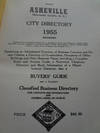![[ FIRST GREEK BOOK PRINTED IN OXFORD ] - Homiliae VI](https://d3525k1ryd2155.cloudfront.net/h/938/672/1539672938.0.m.0.jpg)
[ FIRST GREEK BOOK PRINTED IN OXFORD ] - Homiliae VI: [ FROM THE LIBRARY OF THE POET PONTUS DE TYARD FOUNDER OF " LA PLÉIADE " WITH RONSARD ]
by JOHN CHRYSOSTOM
- Used
- Signed
- first
- Condition
- See description
- Seller
-
Paris, France
Payment Methods Accepted
About This Item
[ THE EXTREMLY RARE FIRST GREEK BOOK PRINTED IN OXFORD ]
[ FROM THE LIBRARY
OF THE POET PONTUS DE TYARD
FOUNDER OF " LA PLÉIADE "
WITH RONSARD & DU BELLAY ]
-
JOHN CHRYSOSTOM,
Homiliae VI, ex manuscriptis codicibus Novi Collegii Joannis Harmari (...) opera et industria nunc primum græce in lucem editæ.
Oxford, Joseph Barnes, 1586.
16vo, (6) ff. 138 p. (signed : A6 , A-H8 , I4 , L1 ). Brown mid-19th century boards, (some rubbing to binding, corners dulled, pp. 103-104 crossed by a tear without missing, title leaf a bit stained, light wetness running throughout the volume, last f. poorly calibrated, notes trimmed in margins). Dimensions: 12,5 x 7,8 cm.
References: USTC, 510576; F. Madan, The Early Oxford press, 1468-1840, Oxford, 1895, p. 18.
Provenances : 1. Pontus de Tyard, bishop of Chalon-sur-Saône (on the title page, handwritten bookplate " Pontus Tyardaeus Ep Cabilon "). 2. Mid-19e century possessor who carried a note on the first flyleaf, drawing attention to the notes of Pontus de Tyard.
Languages of the annotation: Latin, Greek & some words in French
Bibliography : F. Roudaut, La Bibliothèque de Pontus de Tyard, Champion, 2008. S. Baridon, Inventaire de la Bibliothèque de Pontus de Tyard, Geneva, Droz, 1950. J.-L. Quantin, " Du Chrysostome latin au Chrysostome grec (1588-1613) ", in Chrysostomosbilder in 1600 Jahren, De Gruyter, 2008, p. 267-346. F. Rouget, " Complément à la bibliothèque de Pontus de Tyard et de sa famille ", in Pontus de Tyard et la varietas, Classiques Garnier, 2022, p. 279- 285 (see in the same volume the article by Nicolas Ducimetière on the Quran found by Pontus de Tyard).
First edition in Greek - extremly rare - of the Six Homilies of St. John Chrysostom.
This work happens to be the first Greek book printed in Oxford.
Joseph Barnes, the printer of our volume, was the first printer to set up his presses in Oxford in 1585 at the initiative of the University, which granted him a loan, but without royal protection.
The Greek text in our volume, edited by John Harmar (c. 1555-1613), Regius Professor at Oxford, is based on a manuscript in the library of New College, Oxford (the present ms. 80). It includes a homily against those who celebrate the new moon (at Antioch), four on Lazarus and one on those who have fallen asleep. The dedicatory epistle which he addresses to Sir Thomas Bromley, chancellor of England, celebrates the newness. In reality, two of these homilies had already been published in Greek in London in 1543, by Sir John Cheke (it was the first Greek book printed in London, cf. Quantin, 2008, p. 307).
This very precious copy belonged to the poet Pontus de Tyard (1521-1605), a founding member of La Pléiade, alongside Ronsard & Du Bellay. With his bookplate on the title page.
Pontus de Tyard, poet and philosopher, bishop of Chalon-sur-Saône from 1578 to 1593, had assembled an important library, celebrated by his contemporaries. The part that belonged to the lord of Bragny burned in 1636 in the castle of Bragny, but several hundred books remained in the library of his grand-nephew Pontus II, lord of Bissy, described in an inventory drawn up in 1638, especially theology (BnF, ms NAF 6893, see Baridon, 1950, n° 128). We find in this inventory our work, described with a binding "in parchment" and valued at 8 sols. It is indeed in the category of religious books, "Bibles, psalters, works of exegesis of the Old and New Testaments, catechisms, treatises of controversy, (...) Holy histories (...)" (Baridon, p. 7). In his reconstruction of the library of Tyard, François Roudaut (2008) has identified about 200 books coming from Pontus de Tyard - our work is under n° 104 - to which we must add about ten additional titles recently found (F. Rouget, 2022 and N. Ducimetière, 2022).
Pontus de Tyard has written about fifteen notes in our copy, attesting to a careful reading. Some of them are simple corrections of typos in the text, others are more developed notes. On the side of typos, Pontus corrects the wrong theon into theos (p. 11), he restores autarkeia agaton, 2 disfigured words (p. 56) or polousios ("the rich one") instead of polusios which is erroneous (p. 63), and he corrects again on pp. 120 pota into tota and 123 alla into polla.
In the first homily on Lazarus, Pontus de Tyard remarks that the story of Lazarus is also a parable (p. 32: historia Lazari quae etiam parabola). Now this passage is quoted by Hamar in his dedicatory epistle (f. A4v) to explain a serious translation error made by Erasmus in his translation published in 1530: having taken "Xynoris" for a proper name, he understood that it referred to "the holy martyrs Babylas and Xynoris" whereas John Chrysostom spoke of Babylas and "the pair of holy martyrs" whose feast day came next in the calendar, Juventinus and Maximianus (see Quantin, 2008, p. 272). A few pages later, the development on the soul that loves God (philotheon) reminds Pontus de Tyard of a formula in French: rasis gallica eguardes oy une me aymant ieu, p. 38 ). In the third homily on Lazarus, he retains that the Holy Scriptures are to be made a treasure and notes "thesaurus librorum" opposite (p. 77); on the next page, however, a development of St. John Chrysostom on the accessibility of the Bible to the humblest (for the Holy Spirit willed that the Bible should be written by the humble and illiterate) is not corroborated by the historians according to Tyard (p. 78). Pontus also refers to the "auricular confession" (p. 113). Let us point out a repentance: on p. 2, he had noted "we have confidence in our ears" ( auribus nfidamus), before crossing out this note.
Remarkable copy of Pontus de Tyard of the first Greek book printed in Oxford
Reviews
(Log in or Create an Account first!)
Details
- Bookseller
- Nicolas Malais - Cabinet Chaptal
(FR)
- Bookseller's Inventory #
- f18
- Title
- [ FIRST GREEK BOOK PRINTED IN OXFORD ] - Homiliae VI
- Author
- JOHN CHRYSOSTOM
- Book Condition
- Used
- Quantity Available
- 1
- Edition
- First
- Publisher
- Joseph Barnes
- Place of Publication
- Oxford
- Date Published
- 1586
- Weight
- 0.00 lbs
- Keywords
- First Edition Oxford Pontus Ronsard La Pléiade Greek
Terms of Sale
Nicolas Malais - Cabinet Chaptal
About the Seller
Nicolas Malais - Cabinet Chaptal
About Nicolas Malais - Cabinet Chaptal
Glossary
Some terminology that may be used in this description includes:
- New
- A new book is a book previously not circulated to a buyer. Although a new book is typically free of any faults or defects, "new"...
- Rubbing
- Abrasion or wear to the surface. Usually used in reference to a book's boards or dust-jacket.
- Title Page
- A page at the front of a book which may contain the title of the book, any subtitles, the authors, contributors, editors, the...
- Bookplate
- Highly sought after by some collectors, a book plate is an inscribed or decorative device that identifies the owner, or former...
![[ FIRST GREEK BOOK PRINTED IN OXFORD ] - Homiliae VI](https://d3525k1ryd2155.cloudfront.net/h/938/672/1539672938.0.s.0.jpg)
![[ FIRST GREEK BOOK PRINTED IN OXFORD ] - Homiliae VI](https://d3525k1ryd2155.cloudfront.net/h/938/672/1539672938.2.s.jpg)
![[ FIRST GREEK BOOK PRINTED IN OXFORD ] - Homiliae VI](https://d3525k1ryd2155.cloudfront.net/h/938/672/1539672938.5.s.jpg)
![[ FIRST GREEK BOOK PRINTED IN OXFORD ] - Homiliae VI](https://d3525k1ryd2155.cloudfront.net/h/938/672/1539672938.6.s.jpg)


